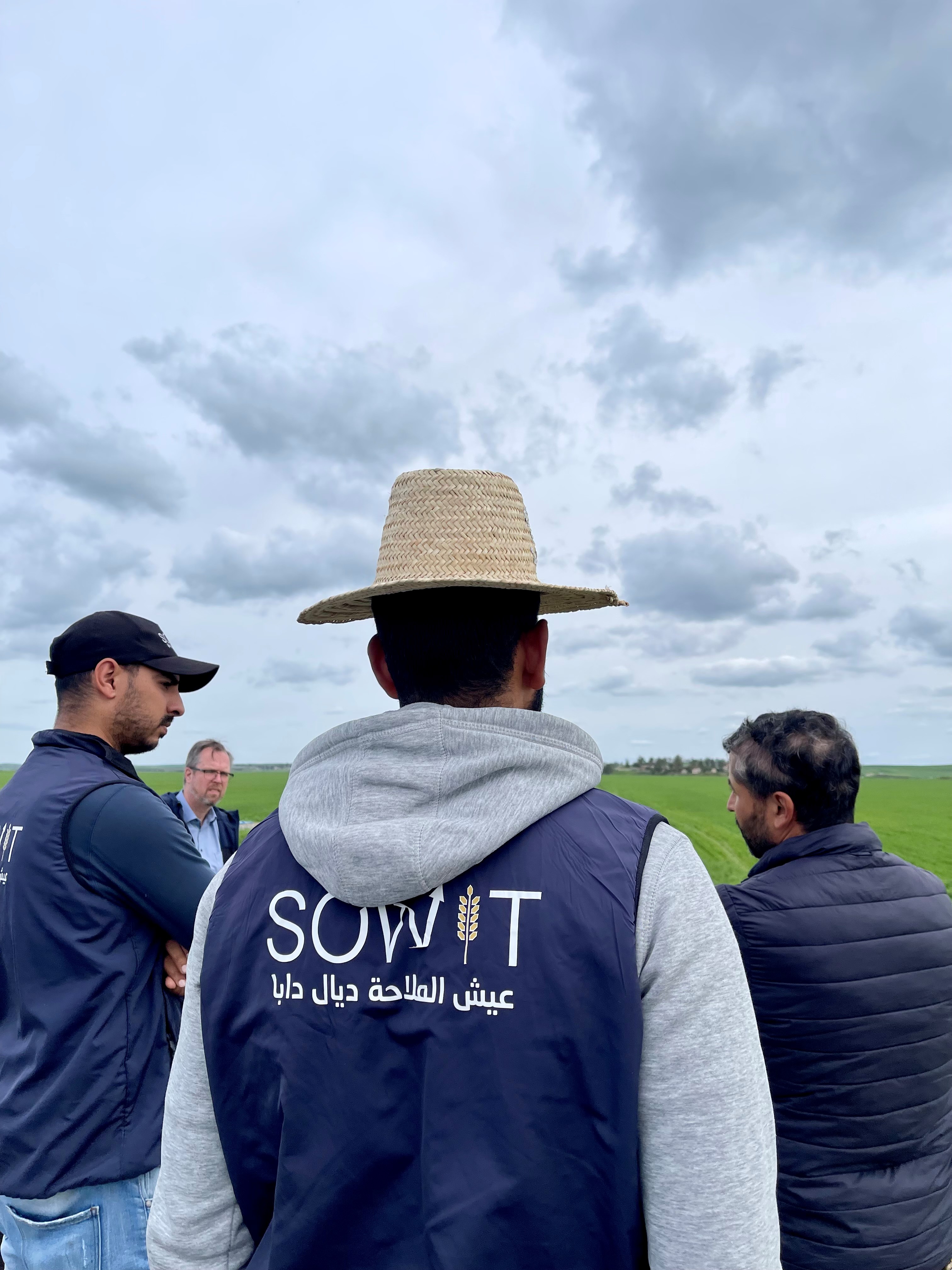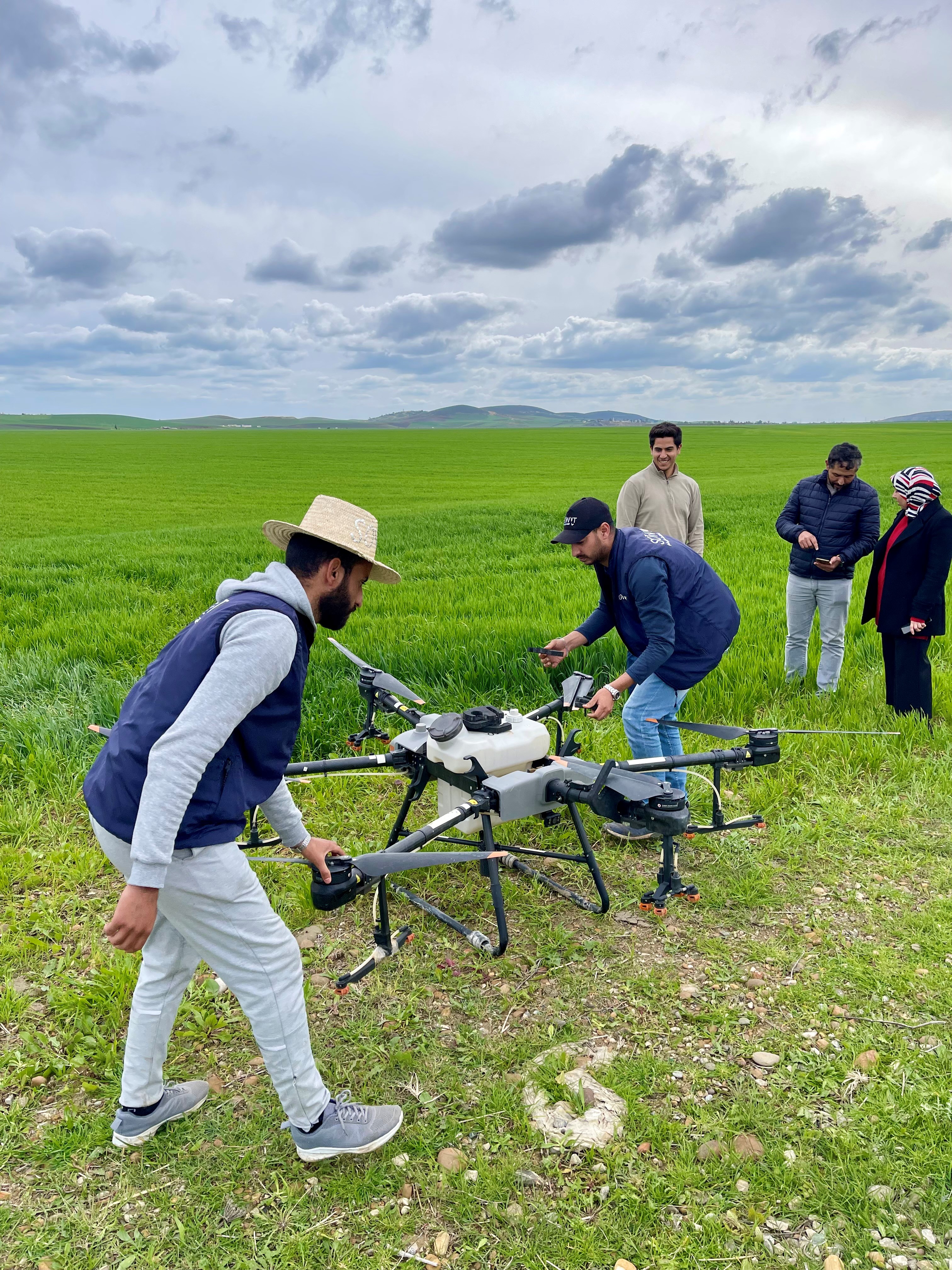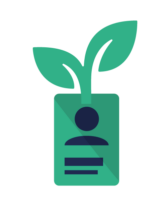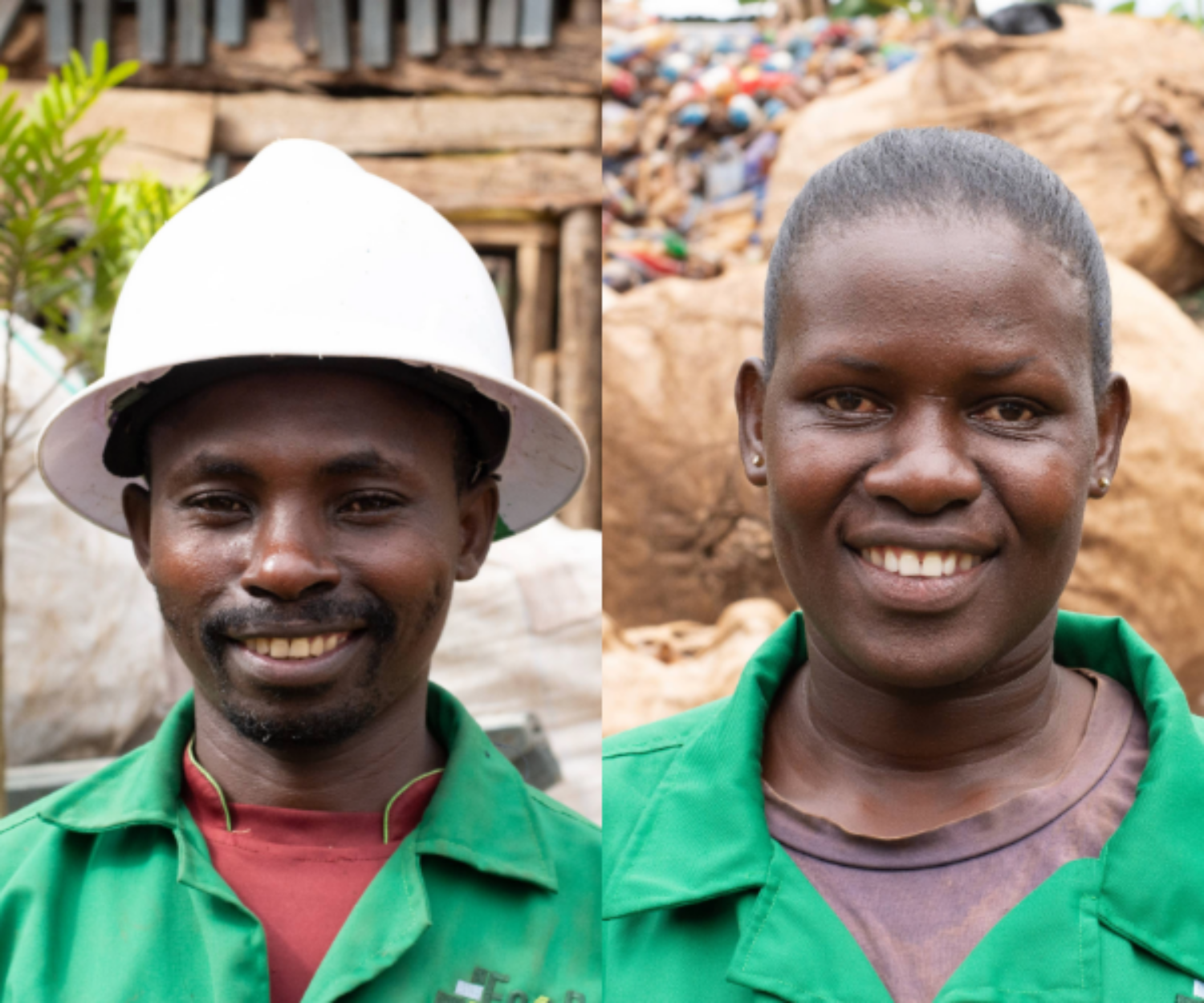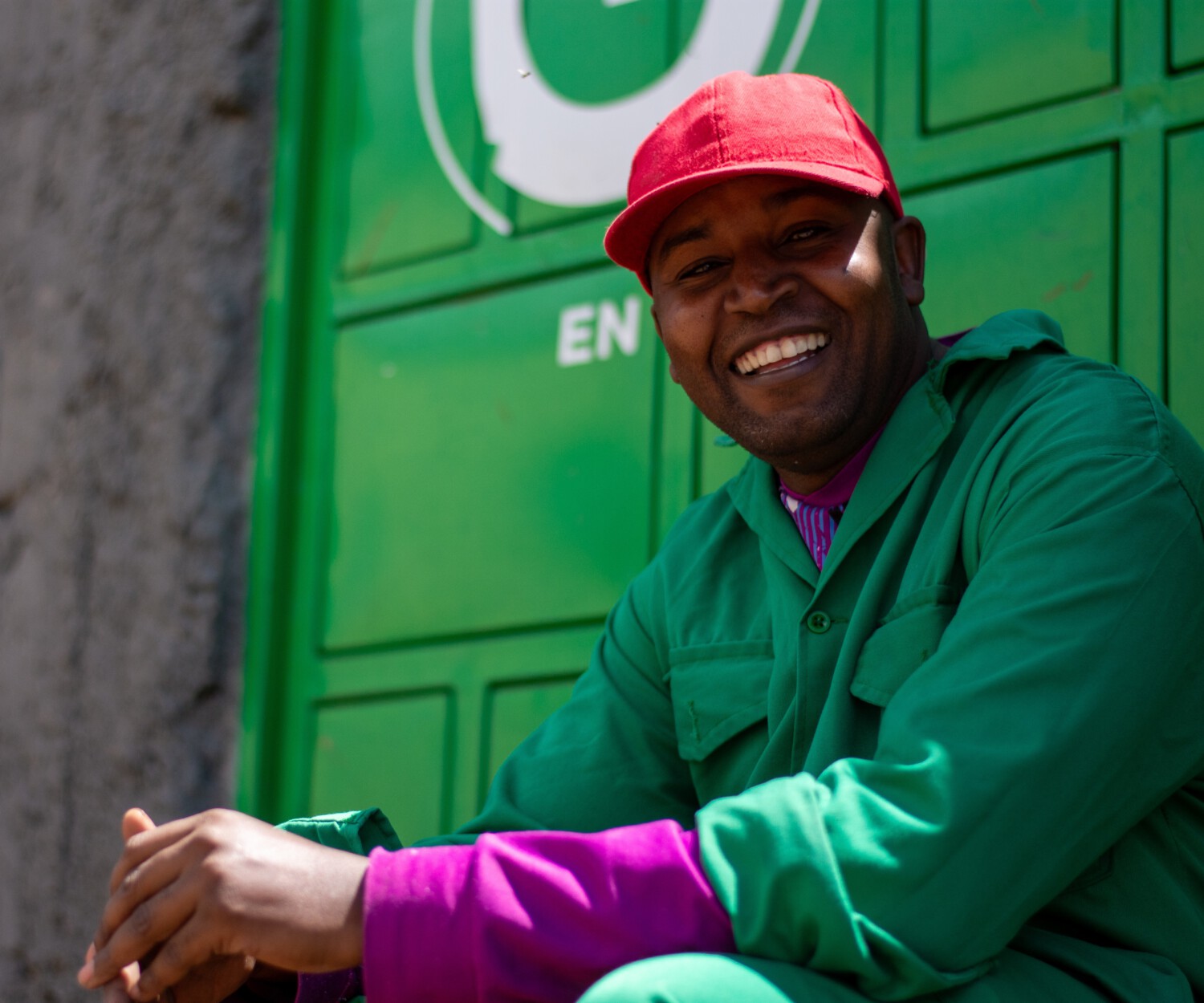SOWIT: Cultivating the Future of Agri-Tech Employment in Morocco
Founded in Casablanca in 2018 by two young Moroccan entrepreneurs, SOWIT is an agri-tech company driving Africa’s agricultural transformation through precision technologies powered by remote sensing and artificial intelligence. In 2022, the company crossed paths with the Challenge Fund for Youth Employment (CFYE), marking the start of a partnership aimed at offering job opportunities to young women and men, across Morocco’s agricultural sector.
Through its partnership with CFYE, SOWIT set out to equip and train 390 young people, half of them women, in advanced agri-tech skills. The initiative sought to connect technology with meaningful employment opportunities by empowering young rural workers to collect real agricultural data, optimise production systems, and improve farmers’ livelihoods. The program focused on two groups: 280 women working in agriculture, to be trained to use precision agriculture tools, and 100 independent agents, equipped to deliver advisory services and onboard new clients across eight regions. Agents received a monthly stipend and commissions based on performance.
2023: Adapting to Challenges with Practical Solutions
Throughout the first year of partnership, SOWIT encountered multiple challenges in implementing their project. Recruiting and training qualified agri-tech agents was difficult due to candidates’ limited formal experience and lack of presence on conventional job platforms. In response, SOWIT implemented an innovative solution by creating an intermediate layer of supervisors. These supervisors, equipped with digital management and marketing tools, provided direct support and mentorship to agents, bridging gaps in experience and field readiness.
SOWIT also faced socio-cultural barriers within rural communities, where the initial focus on training women met resistance from local populations. Rather than retreating, the company proactively sought new partnerships to achieve its goals. Collaborating closely with the High Atlas Foundation, SOWIT extended its reach and sustained engagement with local cooperatives and agri-workers, particularly those impacted by the devastating earthquake occurred that year. Additionally, by opening training sessions to both men and women, SOWIT fostered a more inclusive environment, which not only built local trust but also led to increased participation – especially among women eager for new opportunities.
“The rural training component was too broad and dispersed and local cooperatives are crucial for building trust particularly amongst women. A more targeted approach, focusing on one sector and one group, would have had greater impact”.
Idriss Halfi, CFYE project manager for SOWIT.
2024: Building Resilience and Scale
By 2024, the partnership entered a phase of measurable impact. 16 agri-tech agents were trained while 12 were promoted to supervisor positions, alsoensuring gender balance. Meanwhile, an additional 170 young people aged 15–35 (mostly women across rural areas) received training and, as a result, gained access to precision agriculture tools and improved employability.
Some barriers persisted, such as including rural women, ensuring consistent engagement with cooperatives throughout the year, especially during the summer month, and maintaining the pace of training and recruitment for young Agtech agents.
In response, SOWIT adopted a hybrid model combining in-person and online learning, supported by local associations and cooperatives. This community-based approach strengthened trust and increased participation.
The business also strengthened its HR capacity by hiring a training manager and a commercial HR partner to professionalise recruitment and integration. Adaptability was their key word.
2025: Investment, Innovation and Scaling Impact with Takamoul
SOWIT’s innovative and impactful business did not go unnoticed, as they secured a $2.12 million investment from the International Finance Corporation (IFC) to accelerate its mission of empowering smallholder farmers with digital tools and access to finance.
Their growth phase started with the launch of their “Takamoul Al Falah”, an integrated digital platform designed to support farmers through financing, continuous technical assistance, and regenerative practices. Deployed on over 3,000 hectares and aiming for 40,000 by 2026, Takamoul is fastly becoming a cornerstone of Morocco’s agri-tech ecosystem.
Another partnership with Interprofessional Federation of Cereal Activities (FIAC) contributed to the launch of a digital aggregation and financing platform serving one million hectares of cereal production, aimed at strengthening Morocco’s food security (especially following 5 consecutive years of drought).
“Today, our agents manage three phases” explains Hamza Rkha, SOWIT’s Co-Founder “the acquisition (registering farmers through local markets and partners), technical assistance (providing support throughout the season using SOWIT tools) and harvest phases (ensuring production is sold and loans are repaid).”
“CFYE’s support was instrumental in understanding what young people truly need mainly personalised recruitment, clear career paths, and stable employment. It helped us experiment with contracts and pay models before realising that only competitive salaries and job security ensure real retention.”
Hamza Rkha, Co-Founder of SOWIT
Sustained Impact and Forward Vision
Agriculture remains one of Morocco’s economic pillars, contributing over 11% of national GDP in 2023 and employing around 26% of the active population. However, rural areas still face systemic challenges: gender inequality, youth unemployment, and the growing pressure of climate change. Only 19.8% of rural women participate in the labour market compared to 70.2% of men, and many of those working in agriculture do so informally and usually without pay. Meanwhile, rural youth unemployment exceeds 25%.
In alignment with Morocco’s “Génération Green 2020–2030” strategy, which aims to create 400,000 jobs and build a new agricultural middle class through investment in people and sustainable, competitive agriculture, SOWIT is actively supporting the shift to innovative and digitally driven agriculture. Thanks to the partnership with CFYE, so far around 87 farmers received innovative financing without land guarantees (the first case in Morocco!) allowing them to access essential inputs and focus on production.
By the end of 2025, SOWIT will have multiplied its business activity fivefold, expanded to over 2,200 farmers and 150 agribusiness clients across 110,000 hectares, and grown its team to around 40 members of staff.
Reflecting on CFYE’s role, Co-Founder Hamza Rkha emphasises: “CFYE’s support helped us experiment with contracts and pay models before realising that only competitive salaries and job security ensure real retention.”
Lessons and Legacy
While CFYE’s involvement might have come early in SOWIT’s maturity journey, the company demonstrated remarkable adaptability in the face of persistent socio-cultural barriers to engaging rural workers. The partnership with CFYE provided an enabling environment and became a catalyst for testing and refining innovative youth employment models within Morocco’s evolving agricultural sector. Through overcoming these challenges, SOWIT not only enhanced its operational maturity but also set new standards for leveraging digital agriculture to generate meaningful opportunities for young people and women in rural communities. The achievements realised from 2022 to 2025 underscore how collaboration and forward-thinking innovation can lay the groundwork for an inclusive, resilient, and sustainable agricultural future.
More stories
Interested in more?
Vacancy
Consultancy – Technical Assistant Expert
 Sade Aalto-Setala
Sade Aalto-Setala
 December 3, 2025
December 3, 2025
